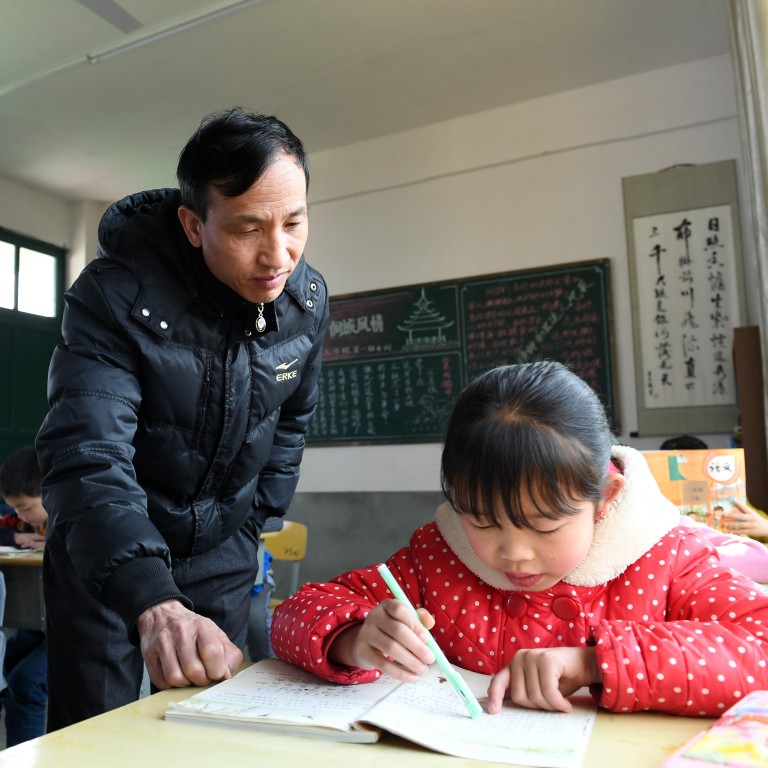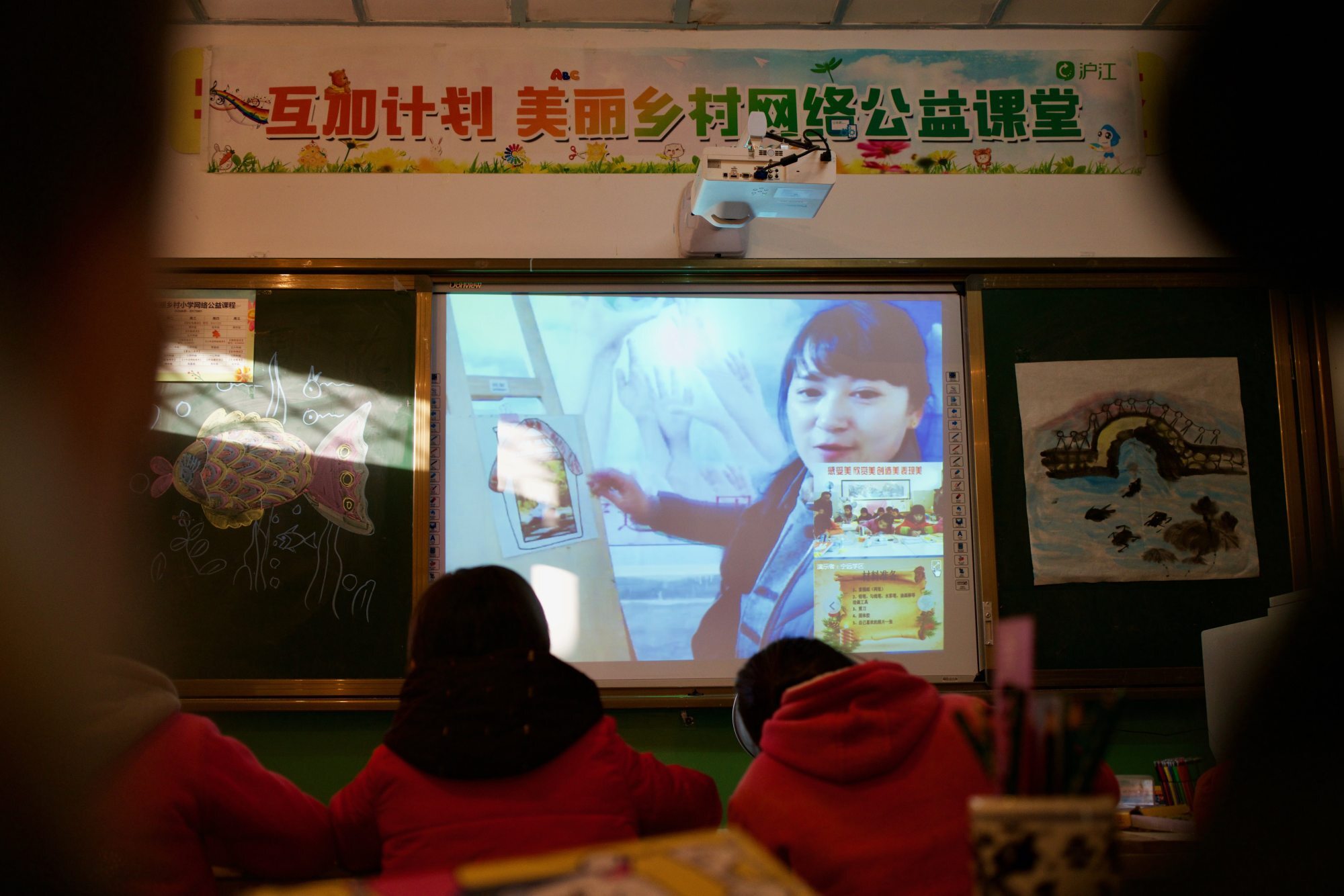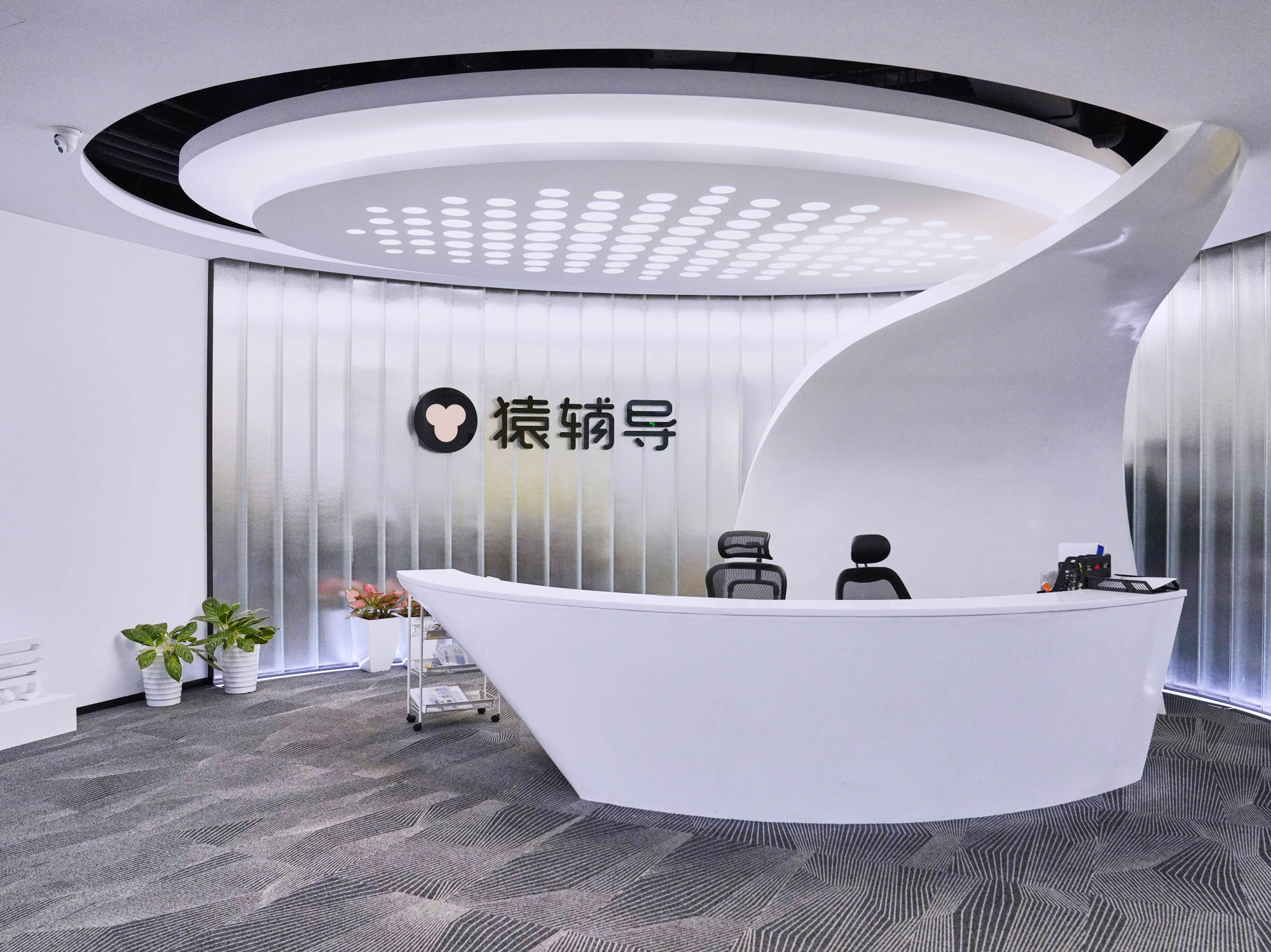
Winter is coming for China’s once booming off-campus training market and that could mean spring is right around the corner for China’s Big Tech
- ByteDance, which has taken on established players across a wide range of online products and services, has identified education as a strategic new business
- China’s K-12 off-campus education market is forecast to reach US$112 billion this year, almost double last year which was adversely impacted by the coronavirus
The Haidian Huangzhuang area in Beijing was once a mecca for students wanting to improve their exam performance.
Located in northwest Beijing close to the prestigious Peking University and Tsinghua University, it was home to hundreds of off-campus training schools, while Huangzhuang had become the capital of China’s booming K-12 training market with 600,000 institutions.
The outbreak of Covid-19, however, dealt a heavy blow to the burgeoning sector, with revenues shrinking by half in 2020 from 2019.
Even though the pandemic has been under control in the country’s capital since Lunar New Year in February, very few classes have resumed. On a recent visit to the area, the once-congested streets – where private cars would line up to drop off and pick up kids – were deserted.

Inside Danling Soho, which used to be one of the busiest buildings, one training school after another remains shut with dust gathering on floors behind locked doors.
That does not mean, however, that demand is lessening. Getting into a top-tier university is considered a make-or-break moment for young Chinese, a belief that has given the tutoring industry a rapid growth boost, but is now coming to the attention of China’s most powerful leaders.
In March, President Xi Jinping described off-campus training programs as a “social problem”. During China’s biggest annual political gathering held in Beijing earlier this month, delegates to the country’s legislature echoed this sentiment calling the training market “chaotic.”
The State Council published a notice on Wednesday reminding parents to be careful of “fly by night” operators when they enrol their children in training institutions.
China’s Big Tech have been making big bets on online education for many years with the likes of Tencent Holdings, which has invested in start-ups like Yuanfudao, Baijiayun and Huohua, while Alibaba Group Holding, owner of the Post, joined a US$1.6 billion funding round for Zuoyebang, an online education firm incubated by search giant Baidu.
ByteDance, taking on established players across a wide range of online products and services, has identified education as a strategic new business and last year formed Dali, a dedicated brand for the sector. It is now on a hiring spree that may double Dali’s headcount to more than 20,000 in a few months.
Marriage of education and technology a silver lining amid coronavirus pandemic
Nasdaq-listed GSX Techedu reported a 1.39 billion yuan (US$213 million) net loss in 2020, compared with net income of 226.6 million yuan in 2019, while TAL Education Group, also listed in the US, reported a net loss of US$43.6 million in the quarter ended November, compared to net income of US$19.6 million in the same period the previous year.
“For every dime earned, it costs two dollars,” Michael Yu, founder and president of the after-school tutoring agency New Oriental Education and Technology Group, said in a speech in November, referring to the huge marketing expenses incurred by the online edtech industry. Yu said the sector invested US$15 billion last year but only got back a few billion in revenue.
Restrictions on the sector might benefit big players with deep pockets because they can absorb the legal risks and survive the cash-burning war, according to He Zhou, senior partner at Allbright Law Offices in Shanghai.
Beijing’s scrutiny over off-campus education, along with the popularity of online training, may benefit the big players as heavy costs of online infrastructure, including IT service and software development, could force small and medium players out of the market.

Wang Yu, founder and general manager of an educational consulting firm operating in Danling Soho, said it was challenging to establish a stable online platform because different operating systems are needed for desktop computers and mobile devices.
“For iPad and phones, you need entirely different tool kits for different operating systems,” he said. “You need a team of professionals to build and maintain the system and keep updating it with new functions, and you need to rent servers to store all the resources. It’s very expensive.”
More affluent parents who can afford the rising fees, however, still see in-person tutoring as the best option for their children.
Yi Jie, who lives in central Beijing, spends about 90,000 yuan a year on her third-grade daughter’s after-school education, but is not happy with the results since classes migrated online.
“My child’s performance on after-class homework is not as good as it was. In an offline teaching environment, teachers can easily spot if she is distracted and interact with her, so the results would naturally be better,” Yi said.
The other problem with online classes is eye strain, a common concern for many Chinese children because they spend hours a day looking at small screens. Yi’s daughter uses an iPad for nine hours of after-school maths, Chinese and English classes per week.
“My child’s eye sight is the priority [at this age]. If I find it’s being affected, I would use offline classes instead,” said Yi.
TikTok-owner ByteDance eyes expansion in online education with help of AI dragon ‘tutor’
The Communist Party’s Central Commission for Discipline Inspection published a story in January criticising the overexpansion of online education. It highlighted problems like false advertising and arbitrary charges, and called for strict supervision of the industry.
“The chaos is mainly caused by the lack of strict supervision. Without establishing a robust system, the problems can be only spotted after it happened,” said Xiong Bingqi, director of the 21st Century Education Research Institute in Shanghai.
Not all after-school training is under scrutiny. Yi said her daughter’s dancing and calligraphy classes have not been affected. Delegates at the “two sessions” parliamentary meetings repeatedly called for improving the overall quality of education for children, instead of focusing on only grades at school.
However, top-down supervision may not be enough to clean up the industry given the boom in demand for such services, according to Wang. “Education resources are so limited in the country and every parent wants a successful future for their children,” he said. “You can’t suppress this desire … so there will be chaos and there will always be businesses willing to take advantage of parents.”


